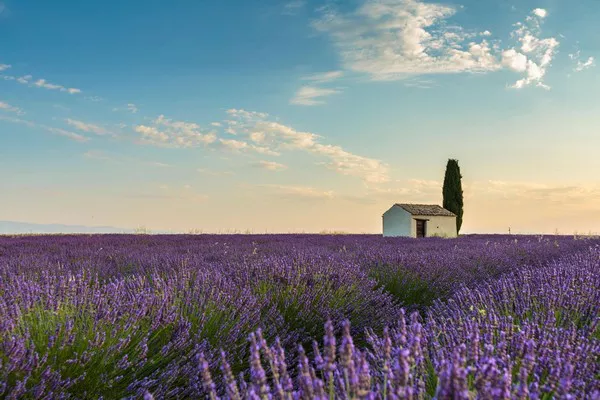Fatehgarh Sahib, Punjab: Gurwinder Singh Sohi, a 45-year-old farmer from Punjab, has made a remarkable shift from traditional wheat farming to floriculture, capitalizing on the region’s favorable climate and fertile soil. Sohi, who hails from a family deeply rooted in wheat and rice farming, initiated this transformation in 2008, aiming to enhance the income prospects for local farmers.
“For generations, my family has been involved in wheat and rice cultivation. Despite the relentless efforts of our farming community, we struggled to secure a decent income. In contrast, floriculture has the potential to yield two to three times the earnings compared to conventional wheat farming,” Sohi explained in an interview with The Better India.
Punjab’s climate, characterized by sandy loam soil and water with a pH of 7–7.5, provides an ideal environment for flower cultivation. Thus, Sohi became the first farmer in Fatehgarh Sahib district to venture into flower farming, a decision that has paid off handsomely.
Presently, Sohi cultivates 40 varieties of exotic flowers, including California poppy, gladiolus, calendula, alyssum, chrysanthemum, daisy, delphinium, lupin, and salvia, covering 22 acres of land in his village of Nanowal. Over a five-month season, he produces approximately 10 tonnes of flowers, generating an income of Rs 1 lakh per acre.
While many of his relatives, including his sister, sought opportunities abroad in countries like the United States and Canada, Sohi remained devoted to his village. Rejecting corporate aspirations, he discontinued his education after completing Class 12. “I never felt drawn to higher education. Instead, I aimed to achieve something meaningful and establish my identity while residing in the village,” he shared.
After experimenting with various jobs, including sales, tea trading, mushroom and poultry farming, and even customizing vehicles, Sohi’s life took a pivotal turn in 2008 when he embraced flower farming as his profession. He received 10,000 bulbs of Holland gladiolus flowers for free from the Punjab Horticulture Department, although he required land for cultivation.
Upon informing his father of his new venture, initial reservations surfaced, as his father believed Sohi had a history of frequently quitting jobs. Nevertheless, his father allocated two kanals (approximately 0.25 acres) of land for the experiment. Sohi planted the bulbs, and within 90 days, they began to bloom. He sold the first batch in local markets, earning around Rs 3 per spike.
Holland gladiolus flowers, known for their extended shelf-life of seven days, represent an economically viable agricultural product. Encouraged by the success of his initial experiment, Sohi expanded his flower cultivation to one acre the following year, introducing additional flower varieties from Europe and Israel. This expansion ultimately encompassed 22 acres of land.
Despite his newfound passion for flower farming, Sohi encountered challenges, particularly in the labor-intensive planting process. “Gladiolus flower bulbs resemble onions. In the past, we planted these bulbs by hand in beds, ensuring the pointed end faced upwards. This was a slow and laborious process,” he noted.
In the absence of a suitable planting machine in the local market, Sohi took matters into his own hands, investing three years in creating a unique machine that could plant flower bulbs efficiently, reducing both time and costs for fellow farmers. He received a grant of Rs 12 lakh from Punjab Agriculture University to support this endeavor.
Describing the machine’s features, Sohi explained, “We utilize a tractor to operate this semi-automatic machine, equipped with a circular plate featuring holes for bulb placement. Previously, it would take an entire day and 30 laborers to plant bulbs on an acre of land. With this machine, we accomplish the task in just two hours, saving Rs 40,000 per acre on labor costs.”
Witnessing the success of these machines on his own farm, other farmers approached Sohi for information. In addition to the planting machine, he developed machines for digging and grading purposes, subsequently selling eight machines to farmers in Punjab, Haryana, Uttarakhand, and Himachal, priced between Rs 60,000 and Rs 1.6 lakh.
Furthermore, Sohi has generously shared his knowledge, providing free training to over 2,000 farmers from various regions, including Leh, Himachal, Uttar Pradesh, and Rajasthan, on exotic flower cultivation. “I hope more individuals will embrace floriculture and double their income. I don’t charge a penny for training fellow farmers,” Sohi emphasized.
In recognition of his pioneering contributions to farming, Sohi received national recognition in 2019 and was recently honored at the state level by Chief Minister Bhagwat Mann, a moment he cherished deeply. Reflecting on his journey, Sohi remarked, “I cannot put this feeling into words. At one point, many people mocked me for frequently changing jobs. Today, my family and the entire village appreciate me. I take pride in being associated with the village and its progress.”
Gurwinder Singh Sohi’s transition from wheat farming to floriculture not only transformed his own life but also holds the potential to inspire and uplift the agricultural community in Punjab and beyond, offering new avenues for sustainable and lucrative farming practices.


